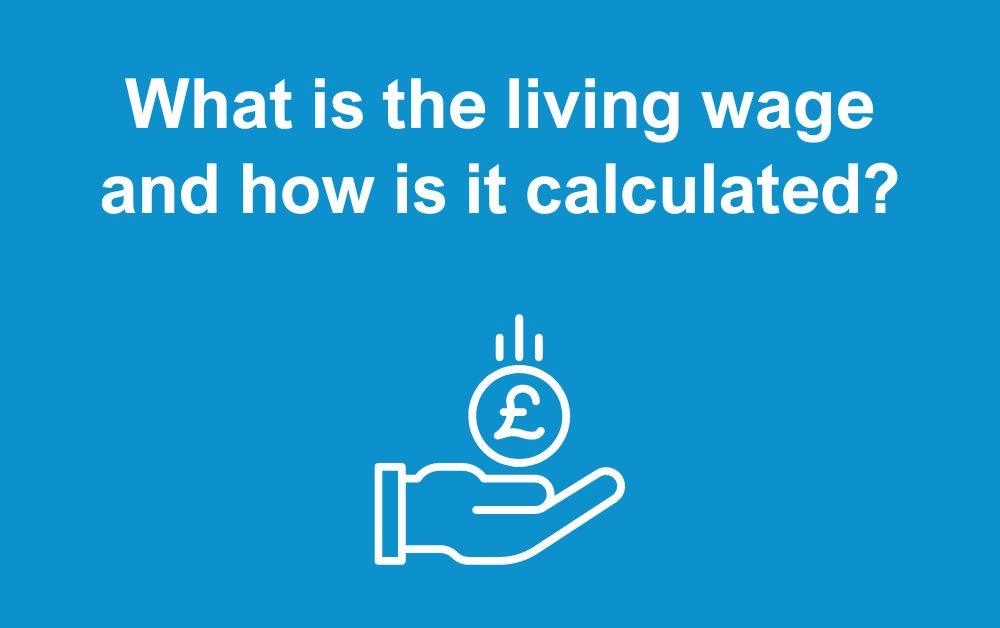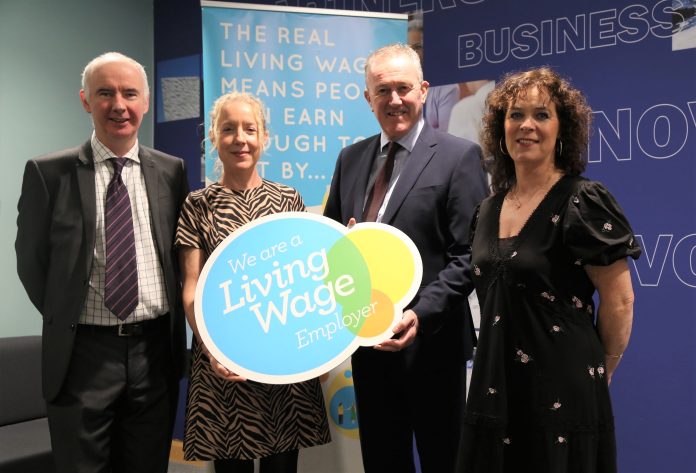The London Living Wage 2024 has been officially increased to £13.85 per hour, a rise that aims to ease the burden of inflation and rising costs faced by workers across Greater London. Announced by the Living Wage Foundation in October 2024, this new rate is not set by the UK government but is independently calculated to reflect the true cost of living in the capital. It’s designed to help people afford life’s essentials—such as rent, food, energy, and transport—without slipping into poverty, even while working full-time.
This new wage rate comes as a 5.3% increase from the previous year and underscores growing economic challenges across the UK. With food prices, utility bills, and travel expenses climbing, the updated London Living Wage 2024 acts as a financial lifeline for low-paid workers, who are often most affected by such economic pressures. The new rate will be expected of all accredited Living Wage employers by 1 May 2025, giving businesses a transition period to adjust budgets and payroll structures.
Understanding the London Living Wage 2024 in Depth
The London Living Wage 2024 differs significantly from the UK government’s National Living Wage, which is legally enforced and currently stands at £12.21 per hour for those aged 21 and over. In contrast, the London Living Wage is voluntary, yet it carries strong moral and reputational weight. It is calculated by the Resolution Foundation using research on the minimum income needed to live a decent life in London.
While the national rate is determined with political and economic factors in mind, the London Living Wage is entirely needs-based. That means it reflects the cost of essentials that Londoners must pay for daily—whether it’s rent in boroughs like Hackney or Camden, or the price of commuting on the Tube. This distinction is why many companies and local councils adopt the Living Wage even when not legally required to do so.
Why the London Living Wage 2024 Matters Now More Than Ever
The importance of the London Living Wage 2024 has grown in direct response to the ongoing cost-of-living crisis. Households across the capital have seen their disposable income shrink dramatically, even with full-time work. Rising interest rates, record energy prices, and persistent inflation have made it nearly impossible for many working families to make ends meet without supplemental income or public assistance.
Providing fair pay through the London Living Wage 2024 not only lifts workers above the poverty line but also contributes to economic stability in local communities. It reduces staff turnover, boosts morale, and enhances productivity. For employers, it can be a strategic investment with long-term returns. For workers, it provides the security needed to plan ahead, support a family, or pursue training and education.
Who Sets the London Living Wage and How Is It Calculated?

The Living Wage Foundation, in partnership with the Resolution Foundation, is responsible for setting the London Living Wage 2024. These organisations use a detailed cost-of-living model that examines household spending on basic necessities, childcare, and housing—particularly in the high-cost environment of London. It’s recalculated each year to stay relevant and realistic.
The 2024 figure of £13.85 per hour is the result of careful research, not politics. That’s what makes it a “real” living wage, rather than a legal minimum. While the National Minimum Wage and National Living Wage are statutory and enforced by law, the London Living Wage is moral in nature—championed by ethical employers and widely supported by the public.
Who Needs to Pay the London Living Wage 2024 and by When?
Employers that are accredited by the Living Wage Foundation must begin paying the London Living Wage 2024 by 1 May 2025. These include a broad spectrum of organisations—from councils and universities to small businesses and multinational corporations. Accreditation means they’ve committed to paying all direct employees and regularly contracted staff the updated rate.
Even for companies that aren’t officially accredited, paying the London Living Wage sends a powerful message. It shows a commitment to corporate responsibility, staff well-being, and ethical standards. More and more job seekers, especially in a post-pandemic world, are choosing to work for companies that value fairness and dignity at work.
How Does the London Living Wage Compare Across the UK?
While the London Living Wage 2024 is £13.85 per hour, the UK-wide Real Living Wage stands at £12.60. This difference acknowledges the significant cost gap between life in the capital and other parts of the country. By contrast, the National Minimum Wage and National Living Wage (set by the government) are lower and tiered by age.
A full-time employee working 37.5 hours a week on the London Living Wage 2024 would earn approximately £27,000 per year before tax, whereas someone earning the government’s National Living Wage would earn closer to £23,800. That gap—over £3,000 annually—can be the difference between surviving and thriving in London’s economy.
Why Businesses Should Care About the London Living Wage 2024
For businesses, adopting the London Living Wage 2024 can be a smart move. Employees paid fairly tend to stay longer, work harder, and speak more positively about their workplace. Studies have shown that fair pay reduces absenteeism and increases overall workplace satisfaction. Paying the real Living Wage also improves an organisation’s public image, which can lead to higher customer loyalty and better recruitment outcomes.
Furthermore, in sectors like hospitality, cleaning, and social care—where low wages have traditionally been the norm—paying the London Living Wage 2024 helps address recruitment crises and improves service quality. It levels the playing field by encouraging ethical competition across industries.
How to Become a London Living Wage Employer
Joining the movement is simpler than many employers realise. To become a Living Wage Employer, businesses need to commit to paying all staff and third-party contractors the correct rate, which in London is the £13.85 London Living Wage 2024. After completing an application and assessment, companies receive accreditation and are listed as supporters of the movement.
In return, employers gain access to support from the Living Wage Foundation, a respected badge of honour for job ads, and participation in a growing national network of over 14,000 responsible businesses. Accreditation also positions the company favourably for public contracts and supplier networks that require wage fairness.
Final Thoughts on the London Living Wage 2024
The London Living Wage 2024 is not just about numbers—it’s about people. In a city where the gap between income and expenses continues to widen, fair pay remains one of the most effective tools for social equality and economic resilience. This year’s rate of £13.85 per hour is a lifeline for many workers, but also a call to action for employers to do the right thing.
As more businesses embrace wage fairness, London can lead the way in creating a sustainable, just economy that works for everyone. Whether you’re an employer, policymaker, or employee, understanding and supporting the London Living Wage 2024 is key to shaping a better future for the capital.
You may also read: London Living Rent: What It Is, Who Qualifies, and How to Apply for Affordable Homes in the Capital




